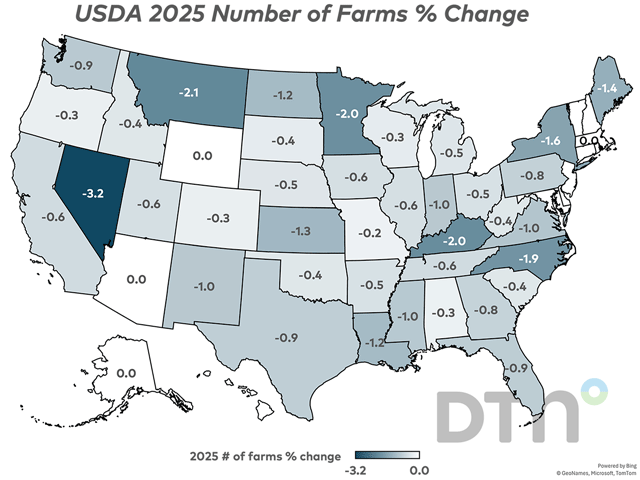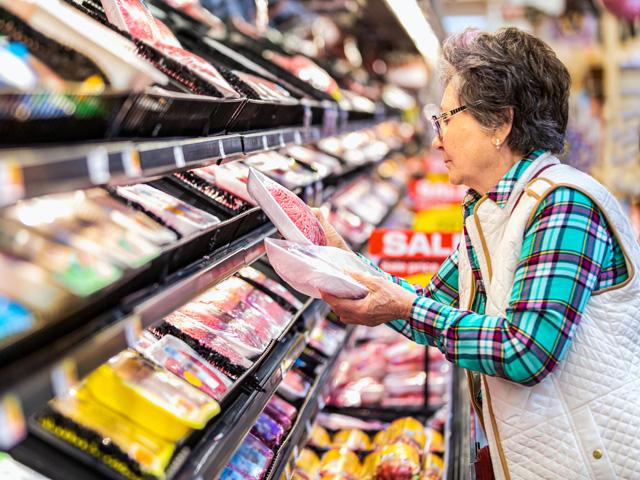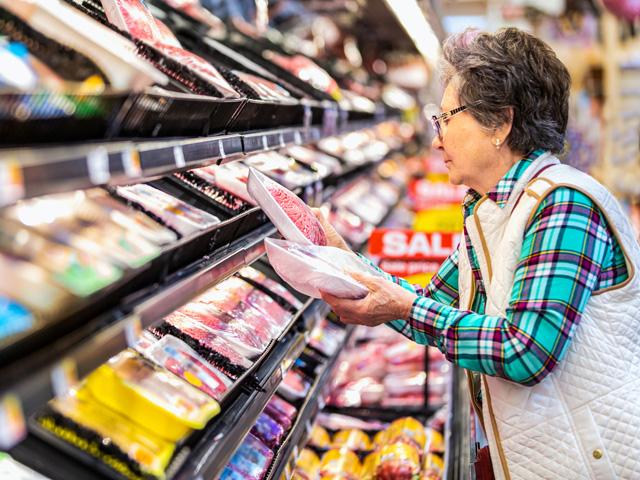Ag Policy Blog
Proposed USDA 'Product of USA' Meat Label Draws Mixed Reaction
SAN FRANCISCO (DTN) -- Agriculture Secretary Tom Vilsack announced Monday that USDA was releasing a proposed rule with new regulatory requirements to better align the voluntary "Product of USA" label claim with consumer understanding of what the claim means.
Vilsack released the proposed rule during a speech to the National Farmers Union meeting, which prompted applause and standing ovations from the Democratic-leaning attendees.
"This rule is about truth in labeling, plain and simple," NFU President Rob Larew said. He added, "For too long, family farmers and ranchers have been competing in a market where imported products were fraudulently labeled as a product of the United States. Thank you Secretary Vilsack and USDA for bringing more fairness for farmers and ranchers across the country."
In a news release, USDA noted that the proposed rule allows the voluntary "Product of USA" or "Made in the USA" label claim to be used on meat, poultry and egg products only when they are derived from animals born, raised, slaughtered and processed in the United States.
"American consumers expect that when they buy a meat product at the grocery store, the claims they see on the label mean what they say," Vilsack said in a news release.
"These proposed changes are intended to provide consumers with accurate information to make informed purchasing decisions. Our action today affirms USDA's commitment to ensuring accurate and truthful product labeling."
"Truthful labels protect consumers and keep the playing field fair," said Joe Maxwell, president and co-founder of Farm Action. "After a five-year fight, we're pleased to see the USDA stepping up to stop the cheaters picking the pockets of America's farmers and ranchers."
"Our petition filed in 2018 has finally been acted on," said Carrie Balkcom, executive director of American Grassfed Association.
"We are pleased to have the USDA act on the 'Product of U.S.A.' as promised in the executive order issued by President Biden in July 2021. This proposed rulemaking change will help American grassfed farmers not be undercut by mislabeled meat coming from offshore. We will continue to work with Farm Action to make meat labels truthful."
P[L1] D[0x0] M[300x250] OOP[F] ADUNIT[] T[]
U.S. Cattlemen's Association President Justin Tupper said, "USCA is pleased to see that the proposed rule finally closes this loophole by accurately defining what these voluntary origin claims mean, something we have been working to clarify since the repeal of mandatory country-of-origin labeling in 2015."
"If it says, 'Made in the USA,' then it should be from cattle that have only known USA soil. Consumers have the right to know where their food comes from, full stop."
But the National Cattlemen's Beef Association was less enthusiastic.
NCBA Executive Director of Government Affairs Kent Bacus said, "There is no question that the current 'Product of USA' label for beef is flawed, and it undercuts the ability of U.S. cattle producers to differentiate U.S. beef in the marketplace."
"For the past few years, NCBA's grassroots-driven efforts have focused on addressing problems with the existing label, and we will continue working to find a voluntary, trade-compliant solution that promotes product differentiation and delivers profitable solutions and for U.S. cattle producers.
"Simply adding born, raised, and harvested requirements to an already broken label will fail to deliver additional value to cattle producers and it will undercut true voluntary, market-driven labels that benefit cattle producers. We cannot afford to replace one flawed government label with another flawed government label," Bacus said.
R-CALF USA said the group supports the proposed reforms to the "Product of USA" label, but R-CALF "remains steadfast" that only legislation in Congress will bring effective change. The group called for passing of the American Beef Labeling Act (S.52) that reinstates mandatory country of origin labeling for beef.
"It is important to understand that the "Product of USA" label is simply a clarification of a voluntary label," said R-CALF USA President Brett Kenzy. "I fear that it will be used at the convenience of global meatpackers and importers. The voluntary label will continue the need for purchase of American beef by consumers to be a research project; beef from foreign countries will continue to bear the USDA inspection stamp."
When asked at a news conference if this rule could be a prelude to re-establishing mandatory country of origin labeling, Vilsack noted that the Obama administration had lost cases on that program in the World Trade Organization three times, and that he has yet to see a proposal that would meet WTO requirements.
He also announced that USDA will spend $89 million to expand independent meat and processing capacity.
Vilsack also said that USDA is creating a liaison with the U.S. Patent and Trademark Office to work on the issue of companies patenting seed.
That process, Vilsack said, will look at basic research and the ways that companies "stack traits" on seeds whether they are needed or not.
Paying for seed, Vilsack said, is "like a cable bill" for programs you don't watch.
"We want to make sure that as things are stacked we look at things from a local and regional perspective," he said.
In his speech, Vilsack repeated comments he made recently to the National Sustainable Agriculture Coalition and the Agricultural Outlook Forum that the current farm system benefits bigger producers, and that he does not agree with a comment by Sonny Perdue, the Agriculture secretary in the Trump administration, that farmers have to get big or get out.
The Biden administration, Vilsack said, is committed to creating more ways for smaller and medium-sized producers to be able to make a living.
-USDA Food Safety and Inspection Service: Voluntary Labeling of FSIS-Regulated Products with U.S.-Origin Claims: Proposed rule https://www.fsis.usda.gov/…
DTN Ag Policy Editor Chris Clayton contributed to this report.
Jerry Hagstrom can be reached at jhagstrom@nationaljournal.com
Follow him on Twitter @hagstromreport
(c) Copyright 2023 DTN, LLC. All rights reserved.






Comments
To comment, please Log In or Join our Community .